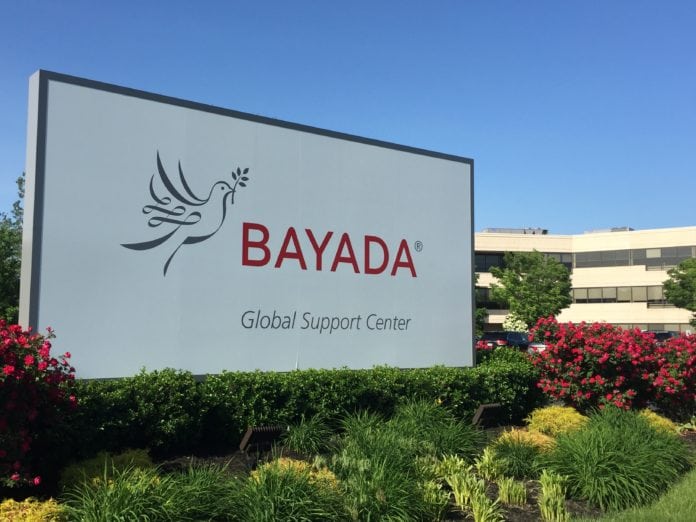A next frontier for home health providers looking to expand their business mix: behavioral health care.
Earlier this month, Bayada Home Health Care opened up the Bayada Pennsauken Center for Applied Behavior Analysis (ABA) Services. The Pennsauken, New Jersey-based center will offer home-based as well as center-based behavioral support and treatment for individuals with an autism spectrum disorder (ASD) and other intellectual disabilities.
The launch of the Bayada Pennsauken Center for ABA Services is part of a larger expansion of this services line for the nonprofit home health giant.
“Bayada has been providing ABA services in Hawaii for over 10 years, and [this has] really built a strong foundation for us,” Jessica Shea-Brown, regional director of behavioral health services at Bayada, told Home Health Care News. “We’ve always had the vision of being able to serve additional individuals who were in need and who could benefit from the service.”
Moorestown, New Jersey-based Bayada offers a range of home-based care services through 360 offices in 23 states, as well as six other countries. The company employs over 28,000 nurses, home health aides, therapists, social workers and other care professionals.
Bayada entered the autism and ABA services space after acquiring Trumpet Behavioral Health’s Hawaii operations in 2014. Since then, Bayada has provided ABA services to more than 600 families in Hawaii.
Brown joined Bayada in April to oversee the company’s expansion of its ABA services in the U.S. — with a focus on the East Coast. She has 20 years of behavioral health experience under her belt.
A main focal point for the Bayada Pennsauken Center for ABA Services will be delivering “ABA and evidence-based methodologies aimed at increasing functional skills,” according to a press statement.
For Bayada, the business case for expanding this service line is clear. Autism impacts an estimated 1 in 44 children in the U.S., according to the CDC. Its prevalence appears to be growing, too, other statistics additionally suggest.
“There’s a very significant need for services,” Brown said. “If we can be a provider that helps families, children and adults access needed services, and break down some of the barriers to access, we certainly want to do that.”
Generally, ABA involves therapy for areas like communication skills, language and focus. Many consider it to be a gold standard of autism treatment.
Some of the biggest providers that specialize in these types of services include 630 Behavioral Health and The Center for Autism & Related Disorders (CARD). While both companies have grown due to the massive demand for services, each had to reportedly lay off workers this summer, according to Behavioral Health Business.
The job cuts were linked to reimbursement challenges – something that Bayada will likewise have to navigate. Bayada’s autism business will operate in the Medicaid and commercial insurance landscapes, with some private-pay.
“We receive referrals from schools. We receive referrals when families self-refer. The children’s system of care in New Jersey will support families in referring, and we will utilize their commercial insurance,” Brown explained. “We are a Medicaid provider, which we’re very excited about. We don’t see so much private pay, but it’s an option.”
Similar to its other service lines, another challenge Bayada will have to navigate: workforce shortages.
The nonprofit, Brown noted, has created an “RBT Academy” to help on the front, however. RBT stands for “registered behavior technician.”
“What we’re doing is we’re building community partnerships. We’re working with local universities. We’re providing internship opportunities,” she said. “And then we’re also providing a training academy – a paid training academy. We’re trying to do some outreach and identify individuals in the community who may have an interest in working with individuals who have autism, or [interest] in the behavioral health field.”
Ultimately, Bayada’s new center will have between 80 to 100 employees. At any given point, the center can work with 50 to 60 individuals simultaneously, in addition to the individuals its teams are working with in the broader community.
For Bayada, it was important to make these services available in the home, according to Brown.
“When it comes to the clinical services, we’re meeting families where they’re at,” she said. “We’re doing a comprehensive assessment and really developing individual treatment plans with them. We’re making sure that we’re identifying goals that are meaningful for the family. As we’re helping with skill acquisition and achievement of developmental milestones, this can be done in the center, it could be done in the home, it could be done in both. There’s no scripted way the services are provided.”
Keeping in mind the amount of services Bayada provides, the company also sees the center as an opportunity for synergy across the organization.
“We’ve had very in-depth conversations with a number of our other practices, because they are seeing a need for ABA services for the clients they’re receiving, individuals who are coming with co-occurring needs,” Brown said. “I think there’s a lot of room for us to collaborate.”
Looking ahead, Bayada has plans to open more centers in the future. Still, the company wants to be strategic about how it approaches expansion.
“We will be very intentional and very thoughtful about what the growth looks like, and ensure we’re going to be in an area in which we can provide the highest quality of service, build community partnerships and really become a member of that community,” Brown said.
Robert Holly contributed to this report.




